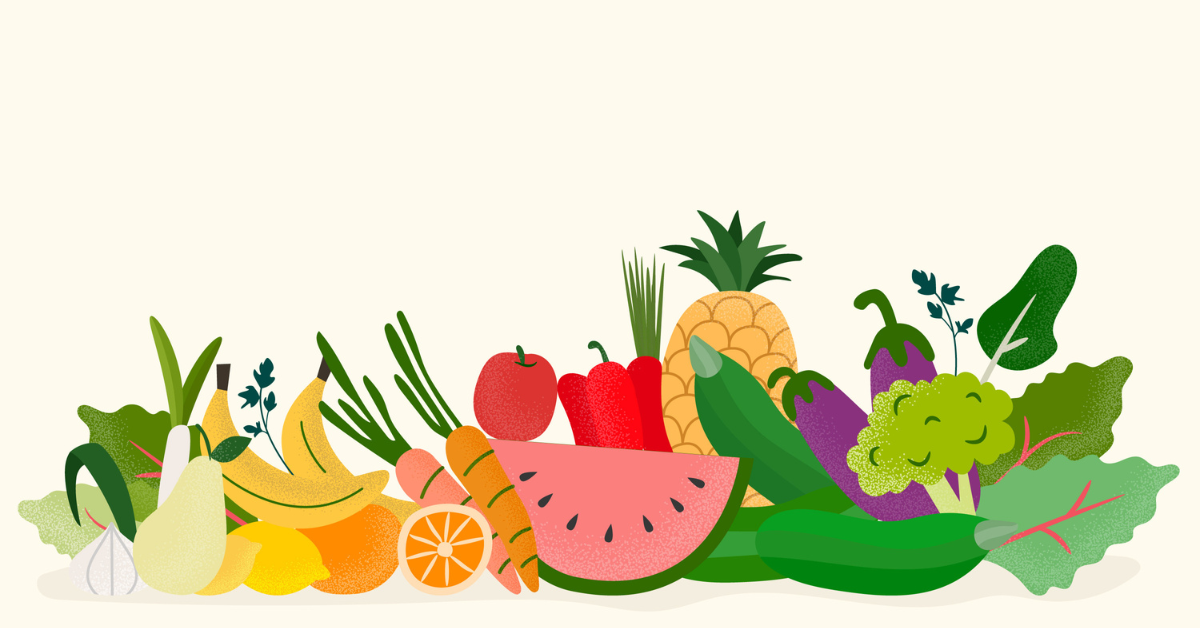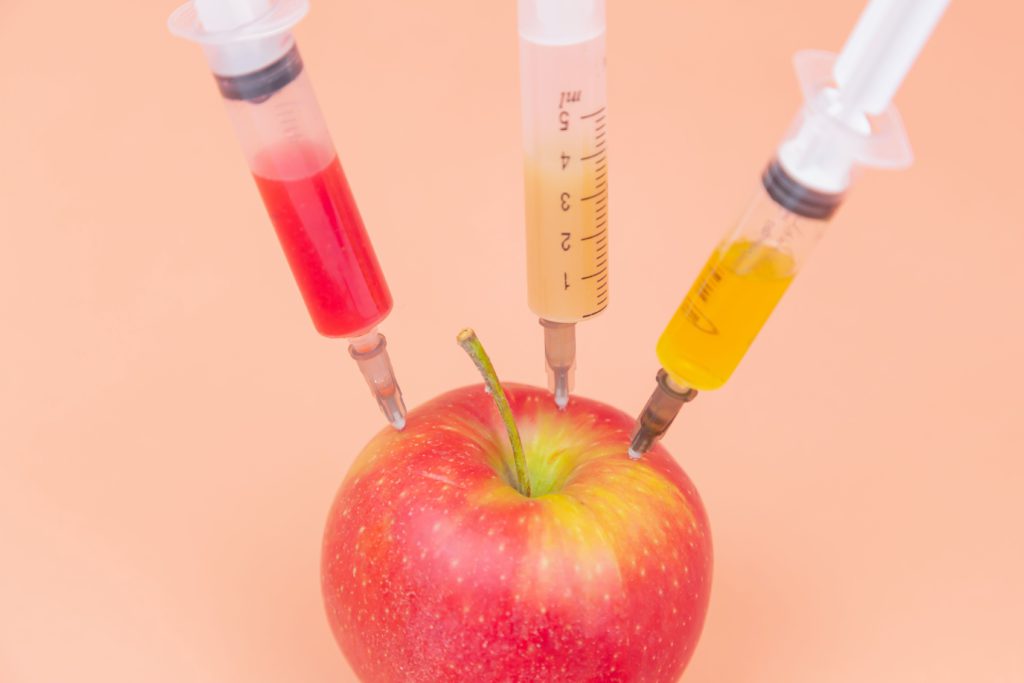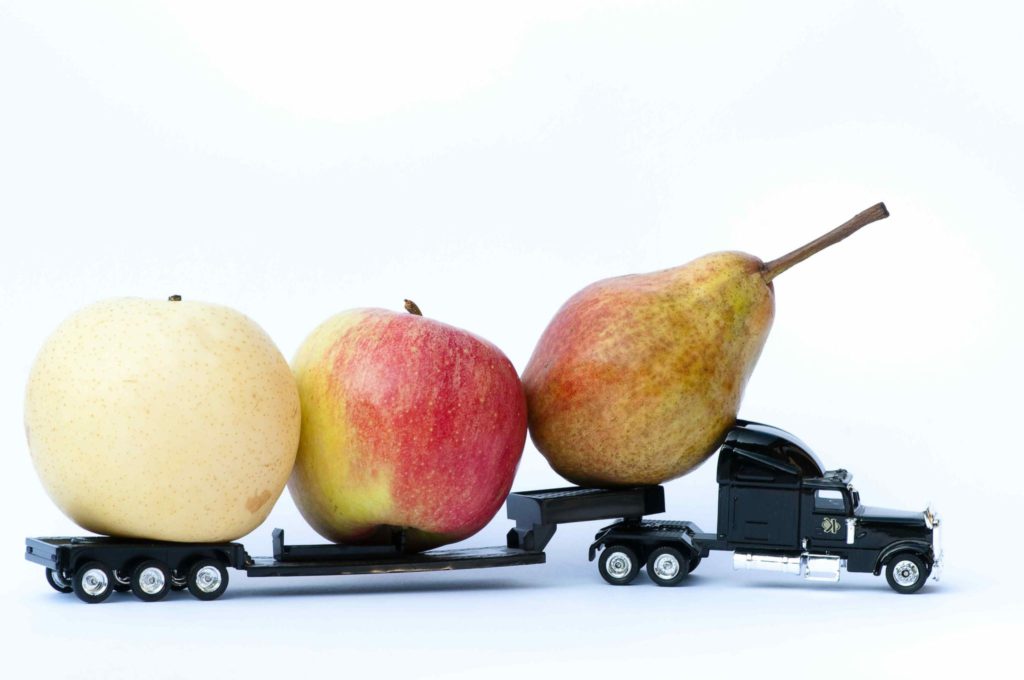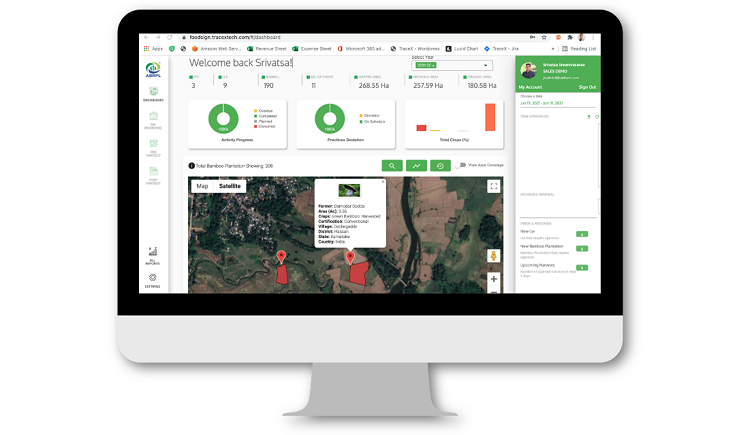Contact: +91 99725 24322 |
Menu
Menu
Quick summary: Indian fruits and vegetable market has a fragile supply chain; about 30% of the produce is lost annually because of changes in prices, market demand, increase in the cost of inputs, lack of storage facility, and unstable logistics. Farm management software enhances operational efficiency and reduces production costs. It serves as a Digital diary for the farmer to plan and carry out farm activities efficiently.

The global fruit and vegetable market was valued at 290 Billion US dollars in 2020 and WHO has reported approximately 16 million (1.0%) DALYs and 1.7 million (2.8%) deaths worldwide which are attributable to low fruit and vegetable consumption.
The diverse climate in India has made the fruits and vegetable market a popular hotspot. It is the second-largest producer having an export worth of Rs. 9,940.95crores comprising of fruits worth Rs. 4,971.22crores and vegetables worth Rs. 4,969.73crores.
India’s major exports in fruits are Grapes, Pomegranates, Mangoes, Bananas and Oranges while Onions, Mixed Vegetables, Potatoes, Tomatoes, and Green Chilly contribute to the vegetable basket.
The rising health consciousness among consumers, the trend towards online shopping platforms and the development of retail channels like supermarkets have boosted the fresh fruit and vegetable sector.

Various factors affect the quality of fruits and vegetables like the contamination of water while production, microbial growth, color and nutrients degradation due to fresh cutting processes, and environmental and packing conditions.
E. coli is an infection that is carried by fruits and vegetables during the farming process. It gets contaminated when there is improper compost manure, contaminated water usage, wildlife interventions, and contaminated harvest.
In recent times the uses of harmful chemicals for pesticides and fertilizers have made a shift towards organic farming inputs and methods. It is the process of not using synthetic fertilizers and pesticides by choosing natural or green manure along with farming techniques to produce organically grown food. A few of its benefits are,

Indian fruits and vegetable market has a fragile supply chain; about 30% of the produce is lost annually because of changes in prices, market demand, increase in the cost of inputs, lack of storage facility and unstable logistics. The agricultural sector and its allied industry employ about 67% of the country’s population.

A well-established link, in India’s fruits and vegetable supply chain, will ensure proper availability of produce throughout India at a competitive price and time. Its supply chain is similar to any other supply chain other than the inclusion of Farmer producer organizations and local mandis. India does need a better supply chain; a few of its drawbacks are,
As with every other traceability in the supply chain, fruits and vegetable traceability implications ensure transparency and accountability throughout the supply chain. It helps keep a track of produce through the supply chain into different processes until it reaches the consumer.
Traceability is a blend of both internal and external traceability data shared across the supply chain. As and when there is a movement of products, there is a simultaneous movement of information. It means the ability of every traceability partner to identify the direct source and direct recipient of the product.
The prime purpose of fruit and vegetable traceability is to provide consumer safety. Providing provenance to the customer along with its ability to track and trace the product for product recalls. Under fresh produce of fruits and vegetables, time is a critical factor. Fresh produce has to be processed, labeled, managed, packed and shipped ensuring quality and safety through the supply chain. Traceability practices help in doing so by ensuring operational efficiency, smooth flow, better market access and mitigating risk factors. Overall, it provides with transparent inventory which performs efficiently with accurate upstream and downstream data.
It’s a safety feature implemented with the help of traceability to track and trace back the fruits and vegetables having defects. Fruits and vegetables can be recalled at any stage of the supply chain if the organization or the regulatory bodies feel there is public health and safety at stake.
Products are recalled with the help of a unique identification number, which helps identify and link back to their source. When a product has to be recalled, all parties in the supply chain are informed to initiate the specific lot/batch recall, traveling both down and upstream to trace the products in real-time.
Blockchain has been a successful implementation in the agriculture sector. It is a ledger recording system that records data digitally and transfers it in an immutable manner. Recording of data takes place both internally and externally to the organization at all input and output points.
Various technological tools have been in place to support data recording and analysis for Blockchain technology. IoT-based data recorder, planting of data analysis devices, weather monitoring devices, QR codes, traceability software, corporate review applications, etc. Fruits and vegetables are labeled and marked throughout the supply chain, along with their linking to the previous processes, all the way downstream to their source. Blockchain ensures controlled production ensuring accuracy, safety, efficiency and cost-cutting.
There are some challenges that plague the first-mile activities in the fruit and vegetable supply chain
These challenges can be addressed by Farm management software that enhances operational efficiency and reduces production costs. It serves as a Digital diary for the farmer to plan and carry out farm activities efficiently.
TraceX’s Farm Management Solutions empowers the FPOs and the associated farmers to realize a comprehensive farm and crop management system to achieve higher yields and profitability, and helping them to comply to regulatory standards.


The Vegetable and Fruit Promotion Council of Kerala (VFPCK) approached TraceX technologies to completely digitalize their Nendran Banana supply chain and to provide provenance of origin and quality as their Banana were exported to the United Kingdom whose regulatory standards were stringent.
TraceX digitalized and connected multiple stakeholders through its Food Sign application which was used to record on-the-go details like crop cultivation activities, harvest, movement of produce to processing, gathering the bananas, cleaning, sorting, grading, hygiene packing and precooling process. Details like product origin, dates, grade, supply chain touch points, etc were provided to the consumers through a QR Code printed on the packing.
Today, technology makes promises about the safety of the fruits and vegetables we eat. Be rest assured when an organization and regulatory bodies thrive in providing food safety with the help of technology. We have come a long way from the conventional agricultural methods, displaying consumers the source, time of harvest, processing, storage conditions and logistics. Fresh produce recall happens daily which portrays we haven’t reached the pinnacle of safety yet but for sure seems the right way forward.
